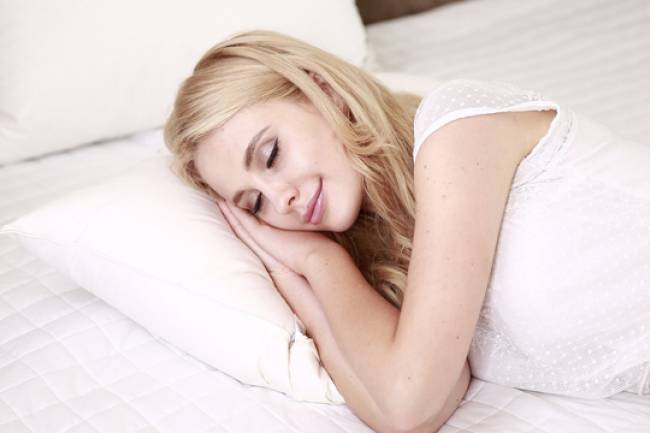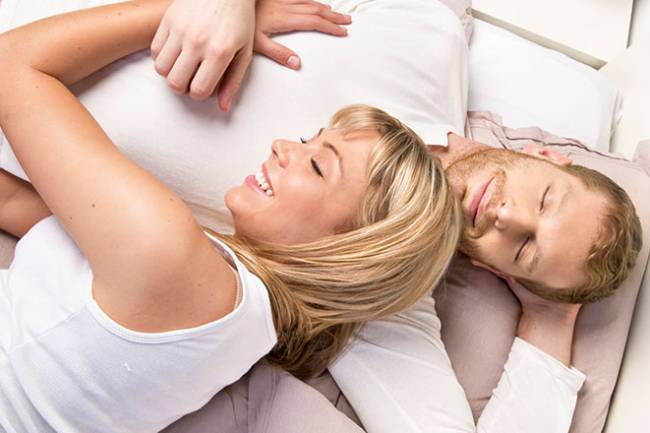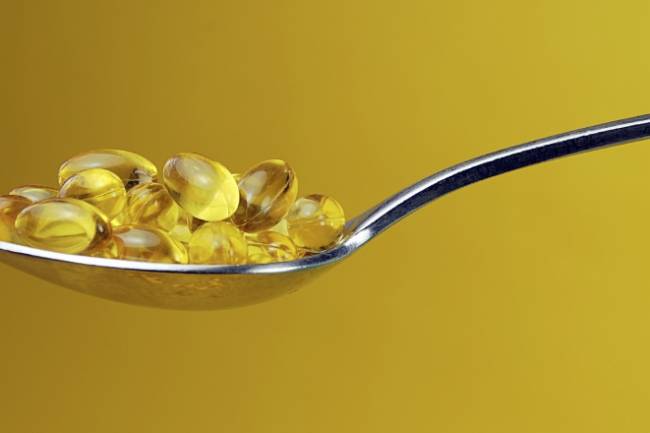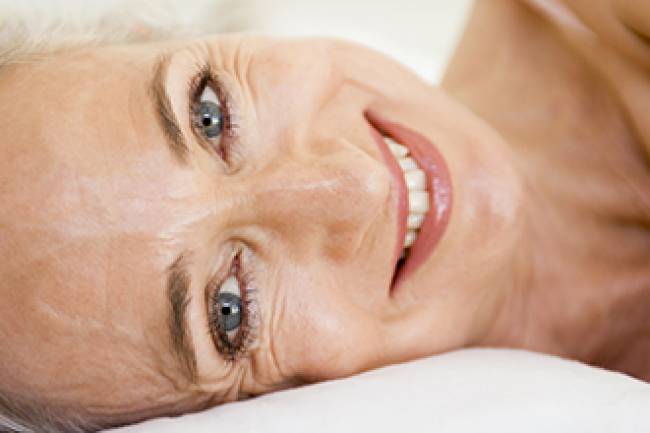Why Do I Jump in My Sleep?
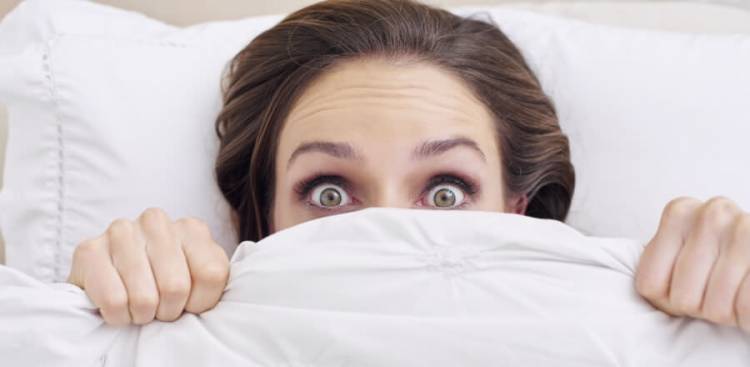
Have you ever bolted awake by an unnerving sensation of falling, just as you were drifting off into deep and peaceful sleep?
Or woken up in a panic with your heart racing, sweating, and feeling like you'd just received an electric shock?
Chances are you were experiencing a hypnic jerk – an involuntary contraction and relaxation of the muscles which causes jumping or twitching.
Hypnic jerks are known by many different names including sleep starts, night starts, hypnagogic jerks, and myoclonus jerks. They are also incredibly common – they are believed to affect over 70% of adults and children, and often go unnoticed as the jerks are not strong enough to break sleep.
However, for an unfortunate few, these jerks can ruin sleep for themselves and their partner.
They occur during the transitional period between wakefulness and sleep, which is known as the hypnagogic state. This is the same stage of sleep where sleep paralysis takes place, which can result in bizarre or frightening hallucinations.
Here we look at the common causes of hypnic jerks and consider whether there is currently an effective hypnic jerk cure.
What Causes Hypnic Jerks?
The medical community isn't entirely sure what causes hypnic jerks, although there are a few different theories. One theory is that as you drift off to sleep your breathing slows down, your temperature drops, and your muscles relax. These changes can cause nerves to misfire, triggering a muscle spasm.
Another theory is that the brain may get confused as you are falling asleep, misinterpreting muscle relaxation for falling and so signals the arms and legs to move to an upright position. If you are overly exhausted, you may go through the first stage of sleep too quickly which makes the brain think that your vitals are falling. The brain responds by releasing chemicals that jolt you awake.
There is also an evolutionary theory that hypnic jerks were used to warn sleeping primates they were about to fall out of a tree, causing the muscles to react quickly. While the underlying cause is not yet known, certain factors have been shown to increase the frequency and severity of hypnic jerks.
These triggers can vary from person to person and include:
- Stress and anxiety
- Feeling very tired or fatigued
- Caffeine or other stimulants
- Intense physical exercise late in the evening.
- Alcohol
- Sleep deprivation
- Medication use
Hypnic jerks are thought to be completely harmless and don't require medical attention. However, they can be associated with certain medical conditions such as sleep apnoea which can be serious and should be treated by a medical professional. If your partner notices that you stop breathing for periods during the night, or you wake feeling unrested, consult your GP.
Is There a Hypnic Jerk Cure?
There is a limited amount of research into the causes and treatments for hypnic jerks. While there is no hypnic jerk cure as such, certain habits can be effective at reducing the frequency and severity of jerks, including:
- Avoid Heavy Exercises After 8pm: Try to avoid heavy cardio or weight sessions in the evening as they can lead to an over-activation of the motor cortex, which the brain finds difficult to shut. Instead, opt for a gentle walk or yoga routine to help you relax and stretch before bed.
- Avoid Stimulants Such as Caffeine After 2pm: Stimulants can disrupt the circadian rhythm and impair our natural sleep schedule and quality of sleep. Caffeine is perhaps the most widely used stimulant and can stay active in the system for as long as eight hours. So stick to a maximum of two cups of coffee per day and avoid drinking it after 2pm.
- Ensure Your Diet Is Rich in Magnesium and Calcium: There is some thought that hypnic jerks are caused by a lack of electrolytes in muscles. Electrolytes are minerals that have an electrical charge and are essential for the maintenance of blood chemistry and muscle function, amongst other processes. Magnesium is a particularly important electrolyte for muscle function as it helps to relax muscles and nerves, and reduces spasms. Good food sources of magnesium include bananas, avocados, and nuts, while supplements and magnesium oil can also be beneficial. Calcium is another important electrolyte for muscle function as it regulates the rate of muscle contraction. Good food sources of calcium include dairy produce, seafood, and legumes, while a combined magnesium and calcium supplement can ensure you don't miss out on either mineral.
- Improve Your Sleeping Environment: Hypnic jerks are more common in people who are sleep-deprived or have irregular sleep schedules, so it's essential to establish a regular sleep routine. Over time the brain will adapt and the frequency of hypnic jerks will likely reduce. Some people find that hypnic jerks occur when they're sleeping in uncomfortable positions so make sure your sleeping conditions are as comfy as possible. Sleeping on your back also increases the risk of hypnic jerks so try lying on your side or front.
- Address Stress or Anxiety: Pent up anxiety and stress are linked to a variety of sleep problems and many people say hypnic jerks worsen when they feel stressed. It is thought that stress impairs the brain's ability to let go of conscious awareness and worry, which is needed to fall into deep sleep. Try to manage stress by maintaining a positive outlook and practising daily relaxation techniques.
- Check Your Medications: Check that any medications you are taking don't have hypnic jerks (myoclonus) as a side effect. It's not uncommon for sleeping pills, pain killers, and antihistamines to trigger small twitches or hypnic jerks. If you are concerned that they may be caused by your medication, speak to your GP to discuss alternatives.
- Natural Sleeping Aids: Perhaps the best loved herbal remedy for promoting deep and restful sleep is valerian. While there is little evidence to show that this will cure the hypnic jerk itself, a high-quality valerian supplement will help you to establish a regular sleep schedule and can be particularly effective at reducing the frequency of hypnic jerks caused by exhaustion or stress.
- Stay Hydrated: The human body is made of up to 70% water and every single cell needs it to function. Drink at least two litres of water per day at a bare minimum, which equates to around eight small glasses.
- Take Time to Relax Before Bed: Spend at least thirty minutes calming the mind before bed to get rid of any restlessness. Try taking a warm, relaxing bath with Epsom salts as these are rich in magnesium to further relax muscles. Lavender oil can also be effective at soothing the nervous system so add a couple of drops under your pillow. But be careful not to overdo it as overpowering fragrances will likely have the opposite effect.
If you have ever suffered from hypnic jerks we would love to hear from you. Have you noticed any particular triggers or found an effective hypnic jerk cure or treatment?

 Nicole
Nicole 